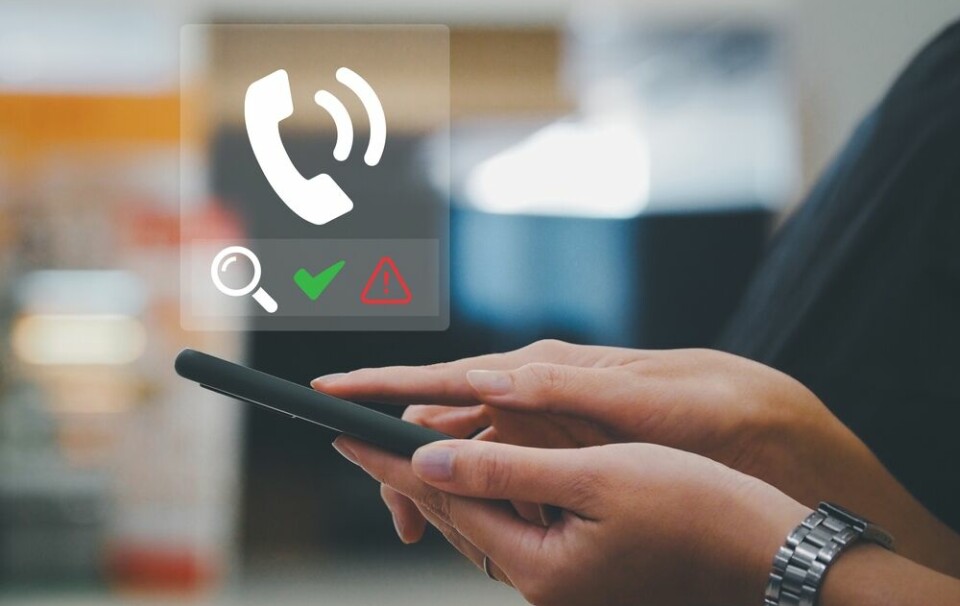-
Ryanair’s presence confirmed at Tours-Val de Loire airport
Bookings for summer flights to Marseille and Morocco are already open
-
Peak in flu cases in France expected in January
Pressure on hospitals is expected to intensify after the holiday period
-
France sees coldest Christmas Day in 15 years as ‘grand froid’ plan triggered
Sharp drop in temperature sees cold weather plan activated in more than a dozen departments
France hits back at radioactive drinking water rumours
Authorities have reassured residents that drinking tap water poses “no risk to public health”, after rumours that it was “contaminated” with radioactive substance tritium.

In a statement published on Twitter, Paris authorities said: “Some media have echoed worries about the presence of tritium in drinking water…[but] the amount observed at present shows no risk to public health from drinking water, and tap water can therefore be consumed with no restrictions.”
Présence de #tritium dans l'eau potable > retrouvez le communiqué de presse sur la consommation de l’eau potable dans les #HautsDeSeine l L'eau du robinet peut être consommée sans restriction sur l'ensemble du départementhttps://t.co/Zg8tfhjMGk pic.twitter.com/8IU9zMSHKs
— Préfet des Hauts-de-Seine 🇫🇷🇪🇺 (@Prefet92) July 19, 2019
The Eau de Paris Twitter account said: “Drinking Paris water does not present any risks to health. Tritium is present in infinitesimally-small doses in the water, with no risk in the short, medium or long term.”
Tritium rumours and thresholds
The defence comes after rumours and reports circulated this week on social media and online, suggesting that drinking water in the capital was dangerous due to the presence of radioactive substance tritium.
Tritium - a radioactive hydrogen atom byproduct of nuclear power generation - is indeed found in drinking water, especially in the Ile-de-France and Loire regions, but the amount is currently so small as to make no impact, experts have said.
The amount measured is far below the maximum permitted threshold set by health code Le Code de la Santé Publique, which is itself set much lower than the threshold given by the World Health Organisation (WHO).
The Code threshold for the substance is 100 Bq/L (becquerel unit of radioactivity per litre of water), and the WHO threshold is 10,000 Bq/L for permanent drinking water.
A bequerel unit is defined as the activity of radioactive material in which one nucleus decays per second.
According to the Hauts-de-Seine authorities, water levels in the region are regularly tested for tritium, with results over the past 10 years found to be between 0 and 24 Bq/L.
The average amount found in Hauts-de-Seine water is 3 Bq/L.
Radioactive risk?
Reports on the tritium levels in "radioactive" drinking water were first published after radioactive monitoring group l’Association pour le Contrôle de la Radioactivité dans l’Ouest (ACRO) warned that almost 270 communes across France were being supplied with water “contaminated with tritium”.
Although it admitted that no levels surpassed the 100 Bq/L threshold, ACRO said: “The regular presence of tritium produced by nuclear centres, in drinking water, demonstrates the much higher risk of contamination by other radioactive pollutants.”
Its research found levels of 8-17 Bq/L north of Dijon, near the Valduc nuclear plant; and levels of 23.2 Bq/L in Châtellerault in Vienne. It found levels of 6.5-17 Bq/L around the areas of Nogent-sur-Seine and Fontainebleau.
In Paris, levels were found to be 0.8 Bq/L in the 19th arrondissement, and ranged from 6.5-10 Bq/L in the surrounding region, from Brie-Comte-Robert, Boulogne-Billancourt, and Ivry-sur-Seine, to Massy.
ACRO warned that in the case of accidents at nuclear reactors in the Seine, Vienne or Loire departments, “much more than tritium” could leak out, and “millions of people risk being cut off from drinking water”.
ACRO said that in order to avoid this, and to reduce levels of tritium in drinking water in general, that radioactive pollution should be included in the government’s cross-party “ORSEC drinking water” management plans - to be used in case of emergency or need - that are being prepared by December 31, 2020.
It also said that radioactive pollution prevention should also be the subject of a public consultation.
Guillaume Rougier, research manager at ACRO, said: “We can clearly see the correlation between this data and the presence of nuclear plants.”
Yet, Mr Rougier conceded: “We are not alarmist. No level is surpassing the threshold set by the authorities. We are not at the point where we need to forbid the consumption of tap water.”
“Normal levels”
In a statement, utilities firm EDF said: “These levels are not at all abnormal. All of these levels conform to normal values. And these levels are not damaging to humans.”
According to Jean-Michel Bonnet, health director at nuclear safety institute, l'Institut de Radioprotection et de Sûreté Nucléaire (IRSN): “Even if you consumed two litres of water per day containing 10,000 Bq/L of tritium for one year, the dose of radiation you would be exposed to would be the equivalent of that received during a flight from Paris to Tokyo.
“This exposure is ten times’ less than the amount [of radioactivity] received by the human body when it is submitted to a medical scan.”
Tritium can be carcinogenic and cause genetic mutations if humans are exposed to it in extremely high doses, such as immediately after a nuclear explosion, nuclear safety agency l'Agence de Sûreté Nucléaire (ASN) has said.
Stay informed:
Sign up to our free weekly e-newsletter
Subscribe to access all our online articles and receive our printed monthly newspaper The Connexion at your home. News analysis, features and practical help for English-speakers in France
























